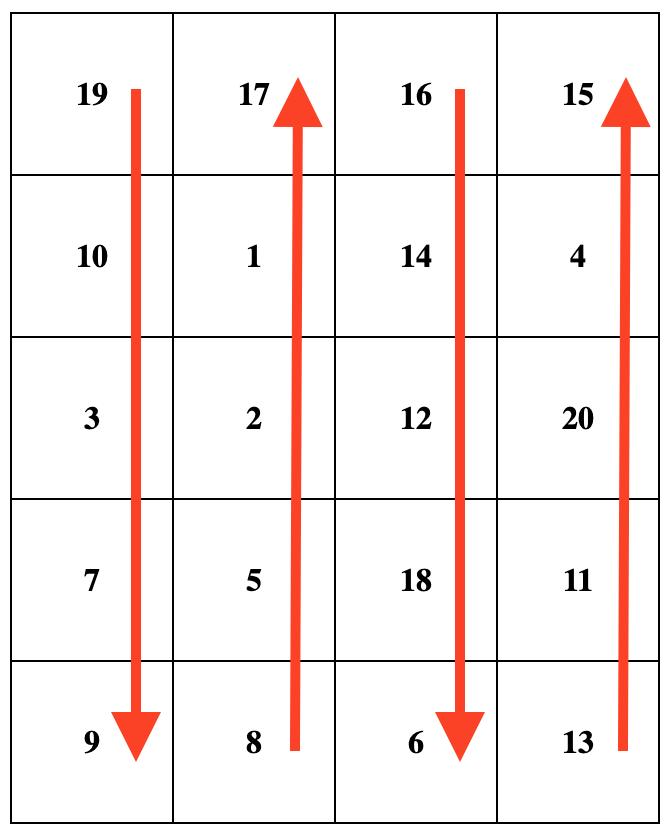上次编辑到这里,代码来自缓存 点击恢复默认模板
/**
* @param {number} rowsCount
* @param {number} colsCount
* @return {Array<Array<number>>}
*/
Array.prototype.snail = function(rowsCount, colsCount) {
}
/**
* const arr = [1,2,3,4];
* arr.snail(1,4); // [[1,2,3,4]]
*/
javascript 解法, 执行用时: 208 ms, 内存消耗: 55.3 MB, 提交时间: 2023-09-20 17:13:34
/**
* @param {number} rowsCount
* @param {number} colsCount
* @return {Array<Array<number>>}
*/
Array.prototype.snail = function(rowsCount, colsCount) {
if (this.length !== rowsCount * colsCount) {
return [];
}
const res = [];
for (let i = 0; i < rowsCount; i++) {
res.push([]);
}
let seq = true; // 正向还是逆向
let start = 0;
for (let i = 0; i < this.length; i++) {
res[start].push(this[i]);
if (seq) {
if (start === rowsCount - 1) {
seq = false;
} else {
start++;
}
} else {
if (start === 0) {
seq = true;
} else {
start--;
}
}
}
return res;
}
/**
* const arr = [1,2,3,4];
* arr.snail(1,4); // [[1,2,3,4]]
*/
typescript 解法, 执行用时: 252 ms, 内存消耗: 58.4 MB, 提交时间: 2023-04-17 15:50:05
declare global {
interface Array<T> {
snail(rowsCount: number, colsCount: number): number[][]
}
}
Array.prototype.snail = function (rowsCount: number, colsCount: number): number[][] {
if (this.length === 0 || this.length !== rowsCount * colsCount) return []
const res = Array(rowsCount).fill(0)
for (let i = 0; i < rowsCount; i++) {
res[i] = Array(colsCount).fill(0)
}
let row = 0
let col = 0
let direction: 1 | -1 = 1 // 1:down, -1:up
res[row][col] = this[0]
for (let i = 1; i < this.length; i++) {
;[row, col, direction] = next(row, col, direction)
res[row][col] = this[i]
}
return res
function next(curRow: number, curCol: number, direction: 1 | -1): [number, number, 1 | -1] {
const nextRow = curRow + direction
if (nextRow >= 0 && nextRow < rowsCount) {
return [nextRow, curCol, direction]
}
return [curRow, curCol + 1, -direction as 1 | -1]
}
}
/**
* const arr = [1,2,3,4];
* arr.snail(1,4); // [[1,2,3,4]]
*/
